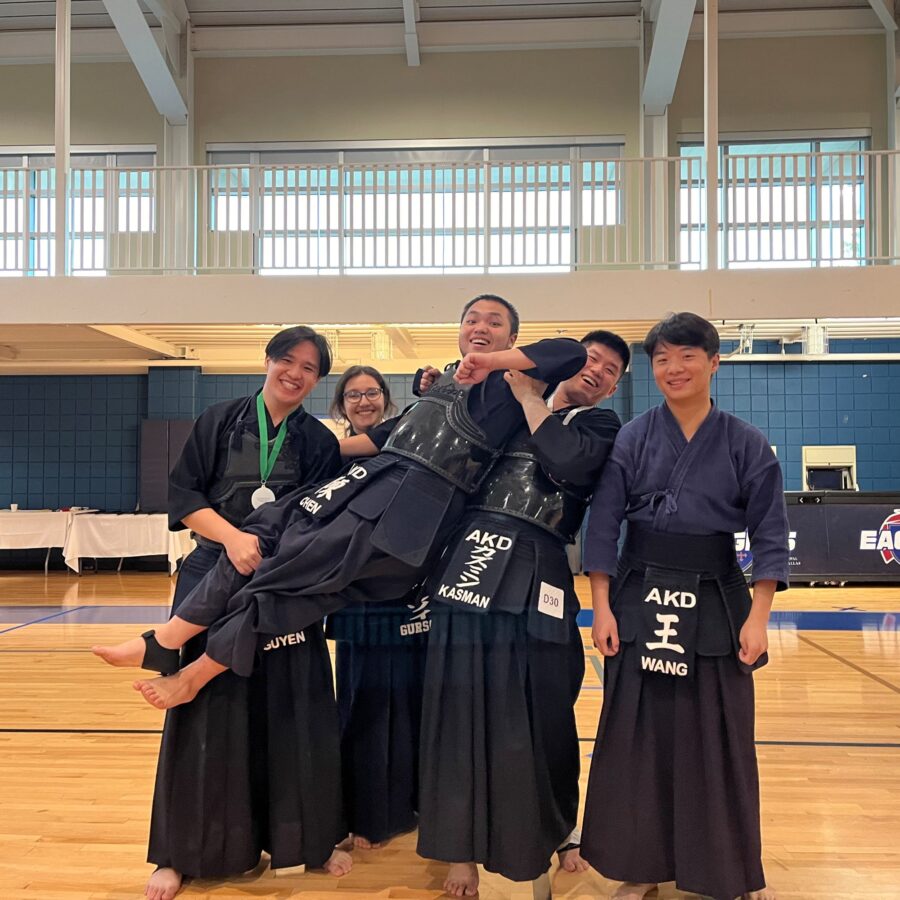Congratulations, Longhorn! You’ve snagged that much-desired study abroad spot, and an epic adventure awaits! But let’s be real: Venturing into a new culture with a language you don’t know can feel like jumping into a mosh pit at a concert where you barely know the music.
Culture shock and language barriers might leave you feeling lost in translation. Luckily, this guide can equip you with the insights you need to not only survive culture shock and language barriers, but to absolutely thrive during your study abroad adventure.
Culture Shock: Don’t Worry
Culture shock is very real. Imagine navigating a world where ordering food or getting around town requires a lot more effort and patience, and where social norms don’t seem straightforward. Don’t worry. Feeling disoriented, homesick or frustrated is totally normal and is likely to happen to some extent. Fortunately, culture shock is temporary.

So, how do we turn this initial chaos into something awesome? Here are some battle-tested tips from a seasoned study abroad veteran (aka me):
- Know Before You Go: Become an expert on your host country. Research customs, traditions, social etiquette and basic phrases to get around. The more you know, the less lost you will feel. It’s like gathering intel before an important mission.
- Embrace the Awkward: While new things are scary, diving headfirst into local experiences is a great way to get more accustomed to your environment. Try that street food everyone is raving about (just make sure it’s well-cooked), attend cultural events that intrigue you and explore your environment by foot, if possible. This way, you’ll dive straight into acquiring experiences in common with others around you, helping your culture shock dissolve in a smoother transition.
- You’re Not Alone: Facing culture shock by yourself is harder if you’re not sharing how you feel with others. Seek out fellow international students, join clubs or find a local buddy. Having a support network makes a world of a difference and can make your experience abroad a little less daunting. If you have a local buddy, it’ll at least make the interactions with locals go smoother.
- Stay Connected (but Don’t Live There): Homesickness can be a beast. Allow yourself to feel it, but don’t let it consume you. Call, text and stay connected with loved ones back home — but don’t forget to be present in your new reality. Balance is key.

Language Barriers Abroad: From Gibberish to Genius
Language can either be a gateway to unlocking a new world or a major roadblock. While you definitely don’t have to speak or comprehend the language like a local, brushing up on your skills goes a long way (especially if you have a homestay). Here’s some tips on how to slay the language barrier:
- Level Up Your Lingo: Before going abroad, it’s helpful to have some phrases down that you can use in restaurants, shops, public transport and on the streets. You don’t need to be fluent by any means, but being able to ask “Where is the train?” goes a long way. In addition, many study abroad courses offer language courses. Take advantage of these resources. In fact, many students go abroad primarily to learn a language.
- Immerse Yourself (Without Drowning): Surround yourself with the language as much as you can. Watch movies and TV shows, listen to music and maybe read the news if your skills are high enough. The more you immerse yourself in a language, the easier it becomes and the more natural it feels. In addition, don’t fear messing up. Learning a language is a journey, and everyone makes mistakes along the way. If you’re traveling with a cohort of American students, your language fumbles are not going to stand out. Keep practicing and learn to laugh at your mishaps.
- Find a Language Buddy: Partner up with a native speaker who wants to learn your language. This is a win-win situation. Many programs offer initiatives where they pair you up with a local student who is eager to learn as much as you. This way, you can practice your language skills and gain cultural insights while you make a new friend.
- Tech to the Rescue: When you find yourself in a situation in which your primitive language skills don’t suffice (which is likely), don’t worry. You might happen to have a magical device in your pocket that can simultaneously serve as a language trainer and a translator. Oftentimes, the quickest way of getting around with minimal language skills is through translation apps.
Studying abroad offers a mix of excitement and challenges. With knowledge and resilience, these challenges become opportunities for personal growth and cultural immersion.
By embracing local experiences, connecting with peers and finding a balance between staying connected and being present, students can thrive in their new environments. Although homesickness may arise, embracing this journey with curiosity and a spirit of adventure will ensure that you have a transformative experience.
Alek Blonk is an Education Abroad Peer Mentor providing support to students interested in studying abroad. Learn about this position and its services on the Peer Mentors Program webpage.





